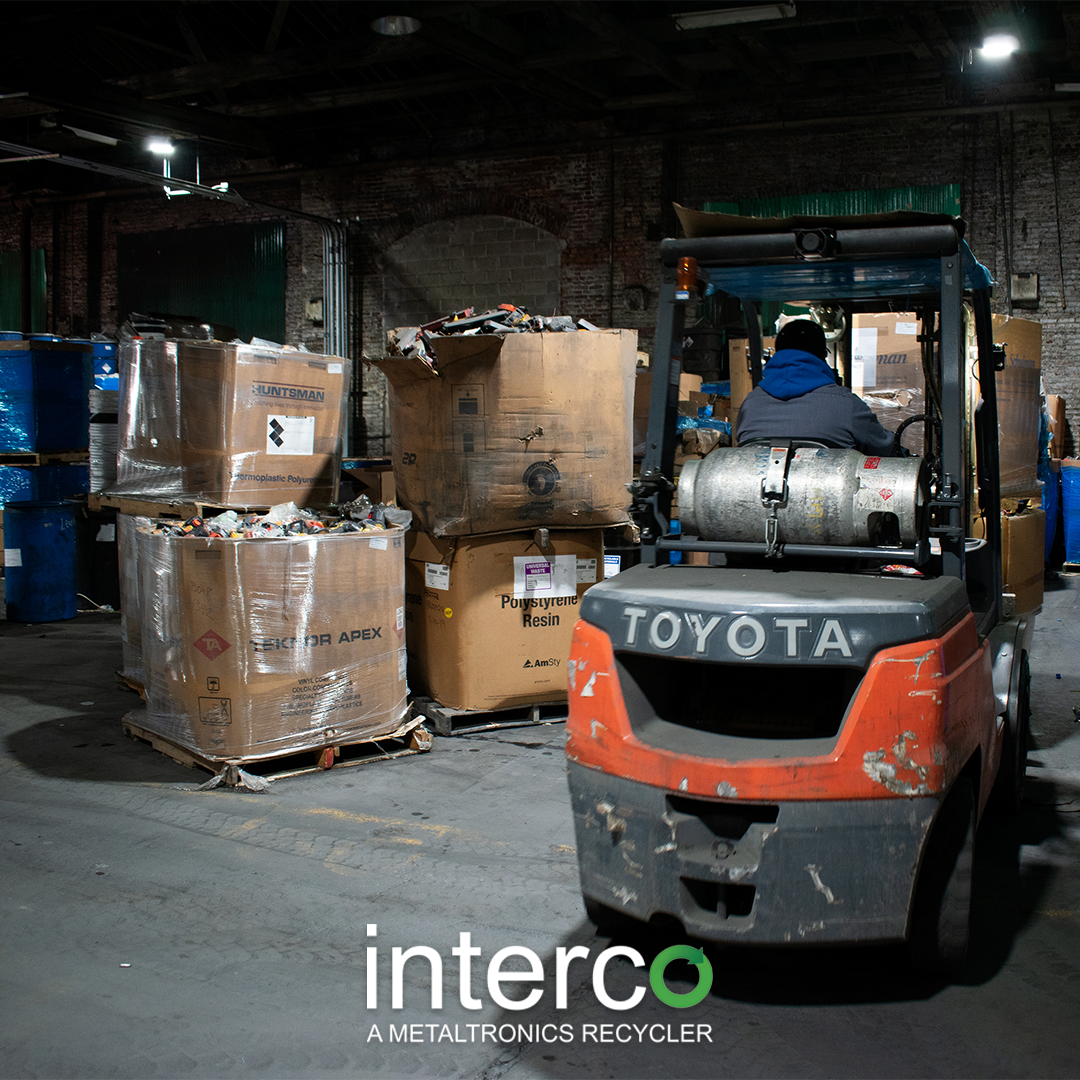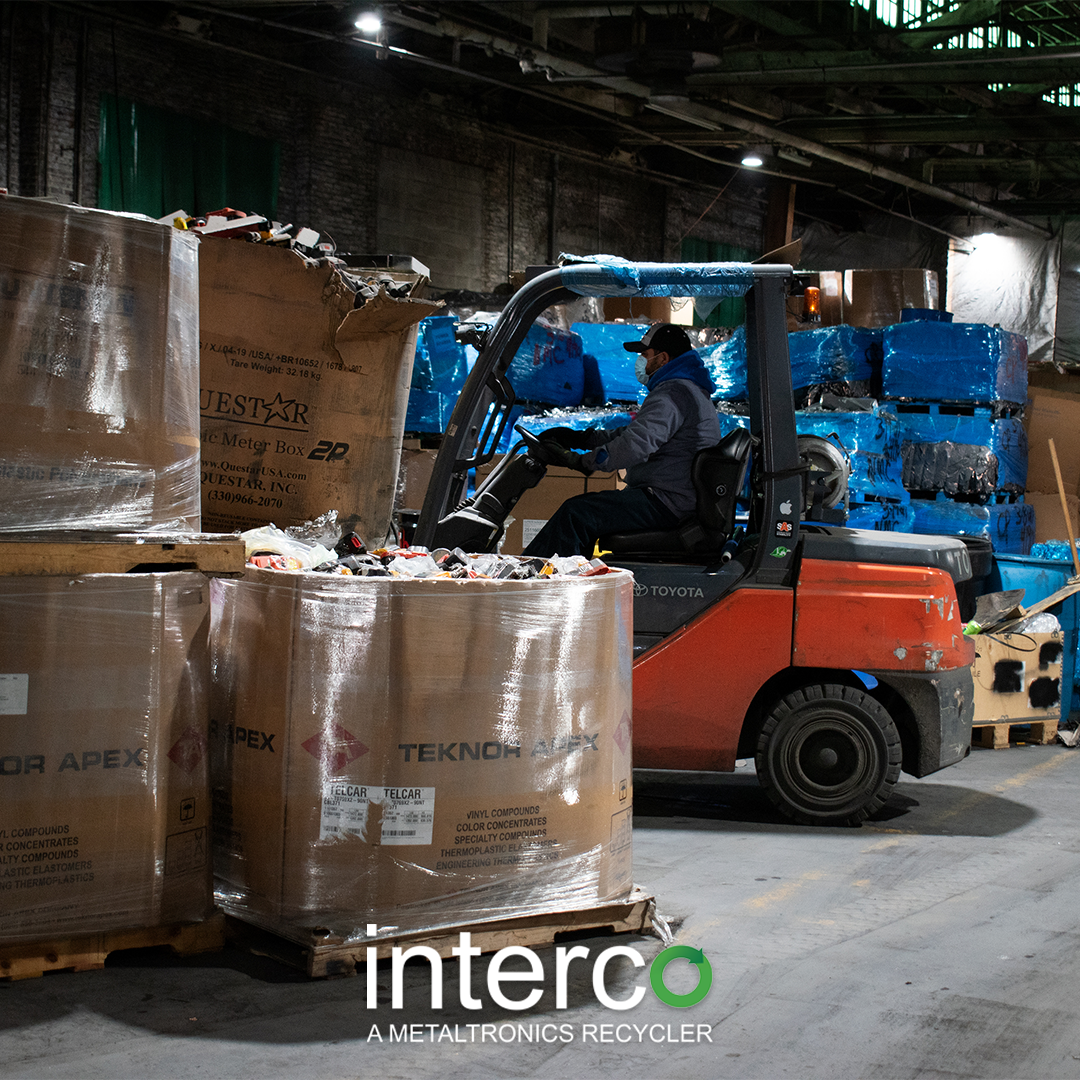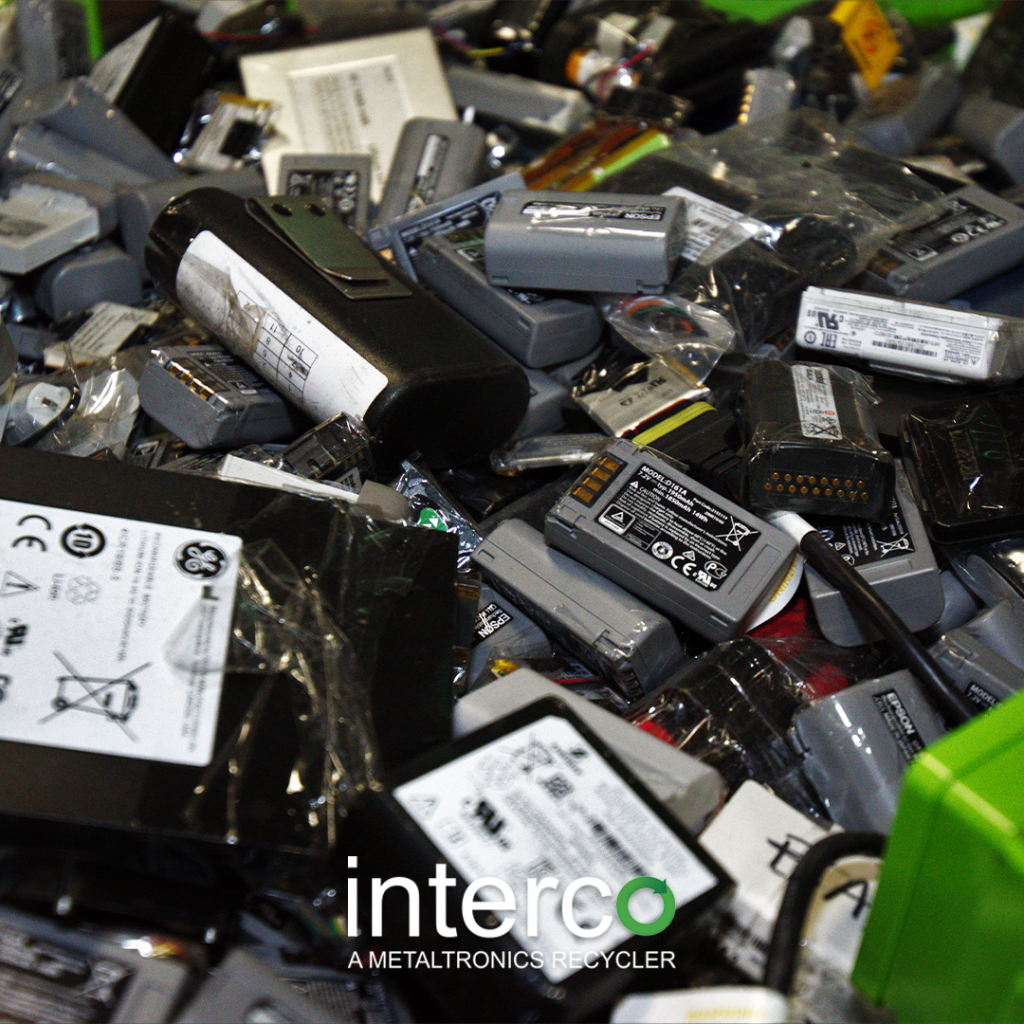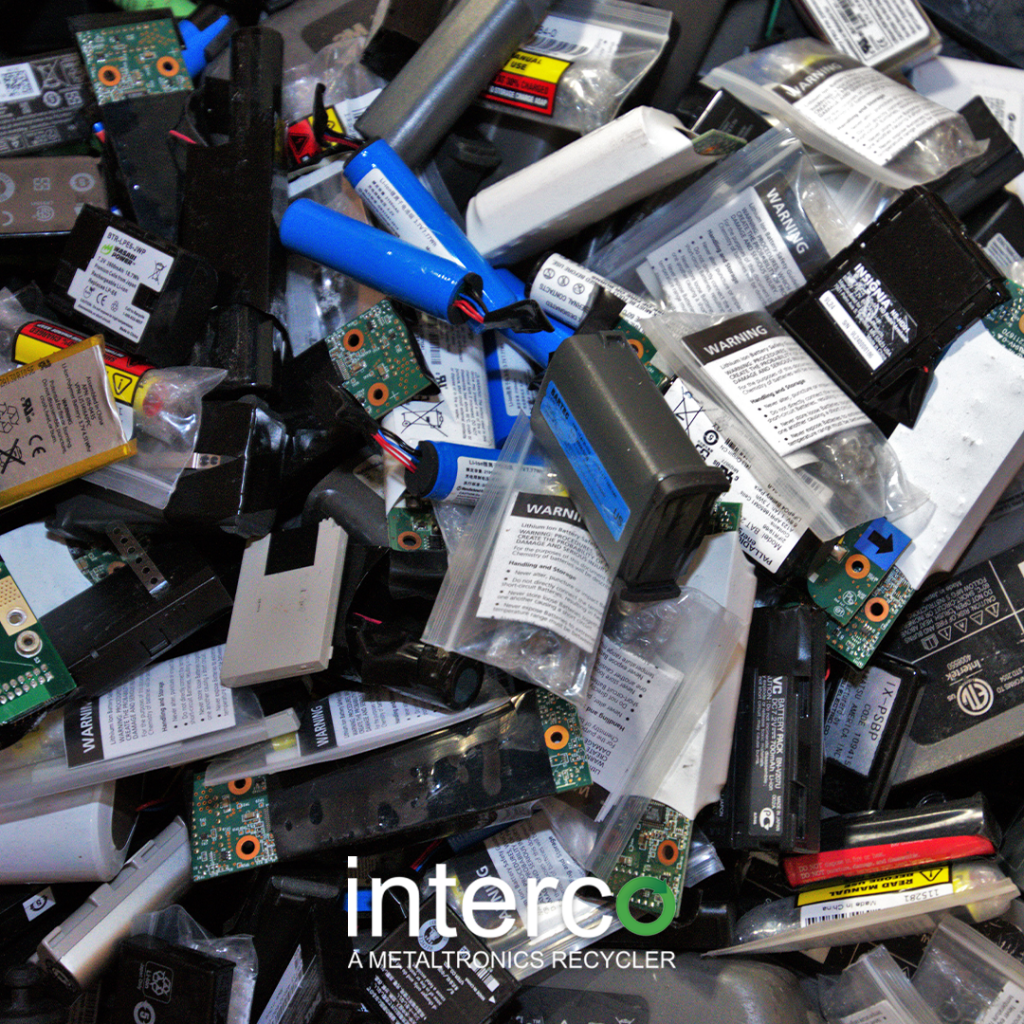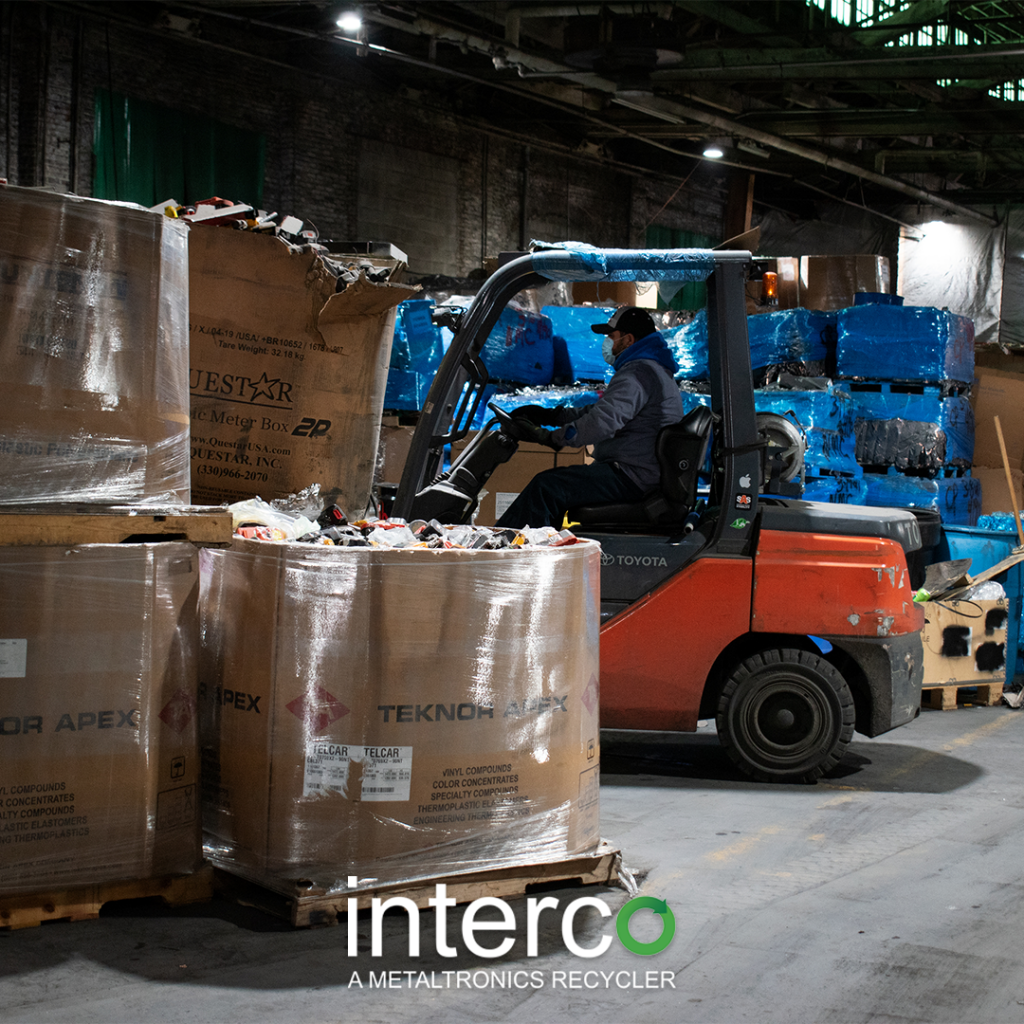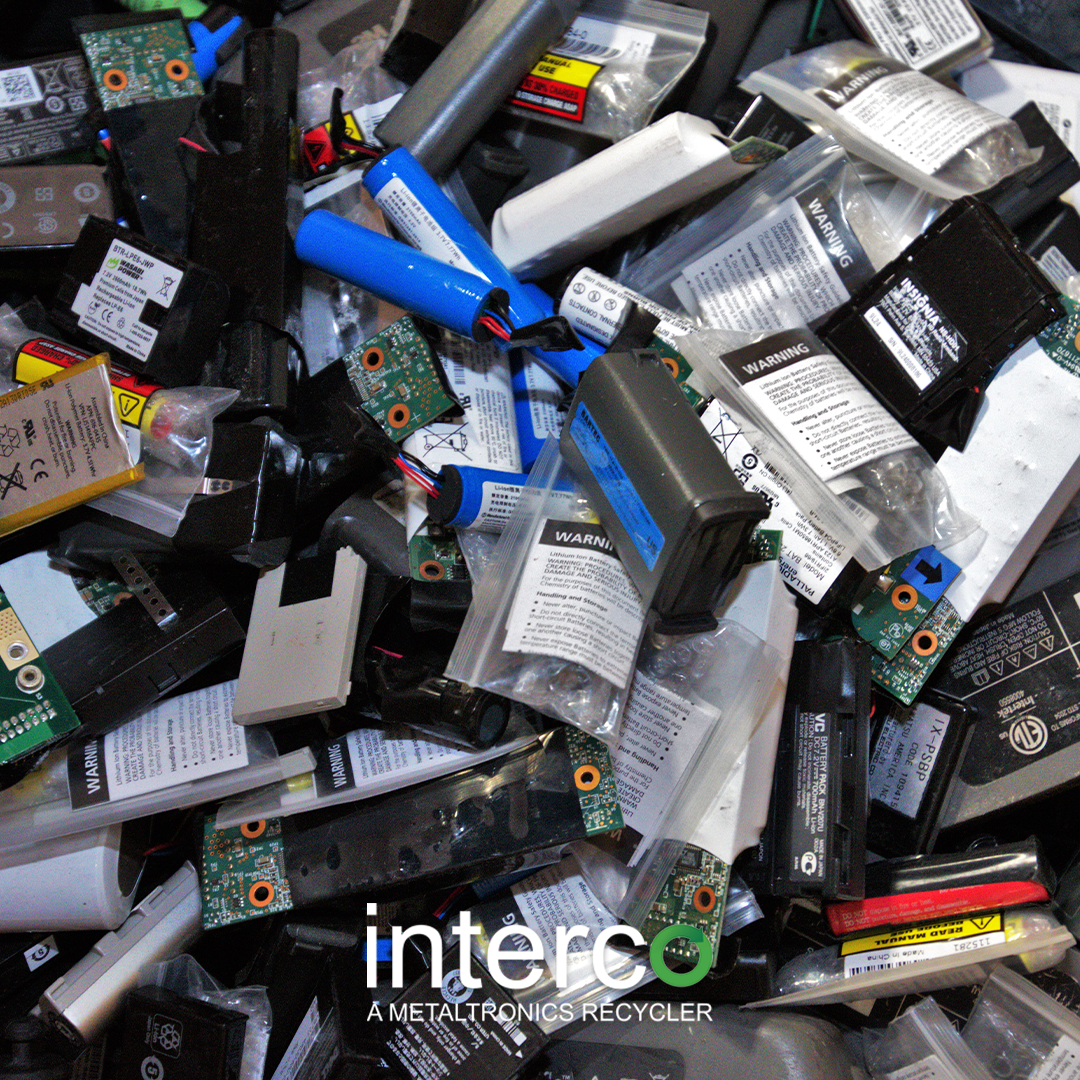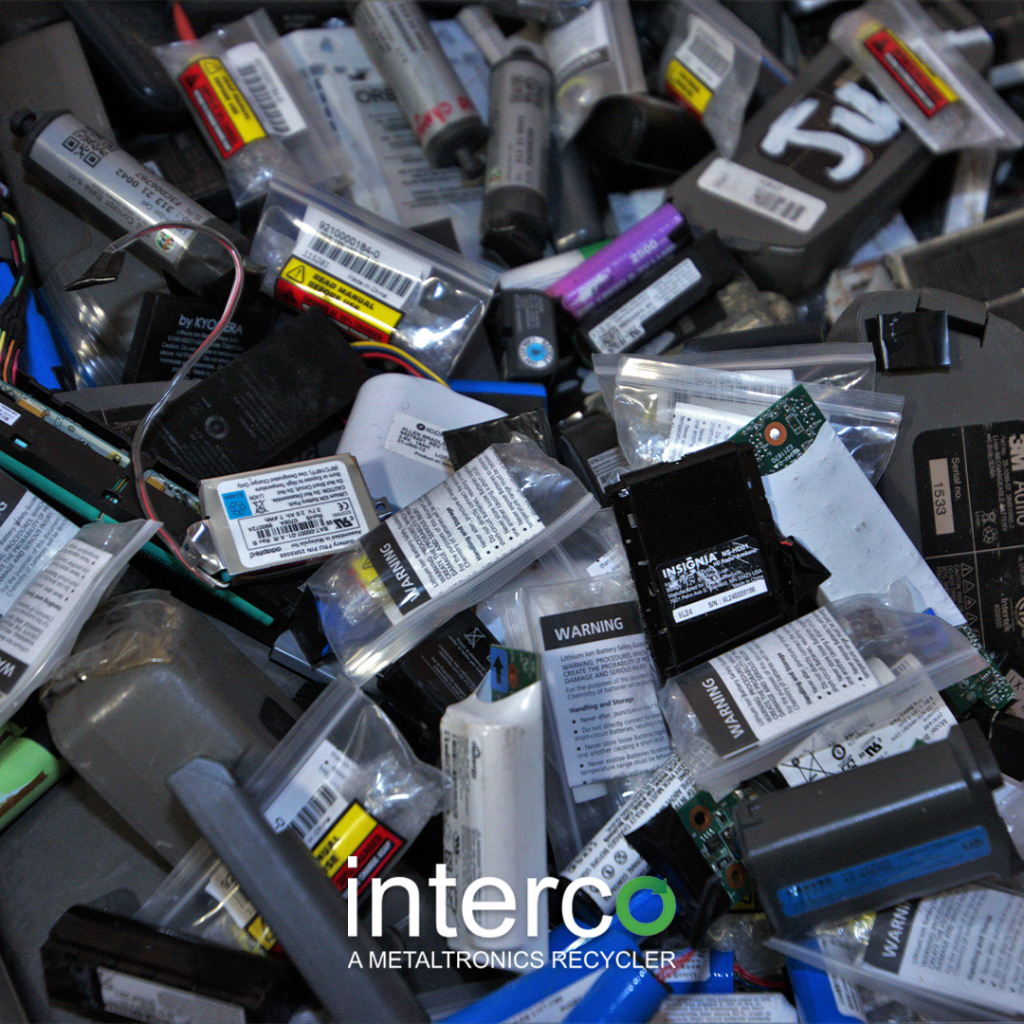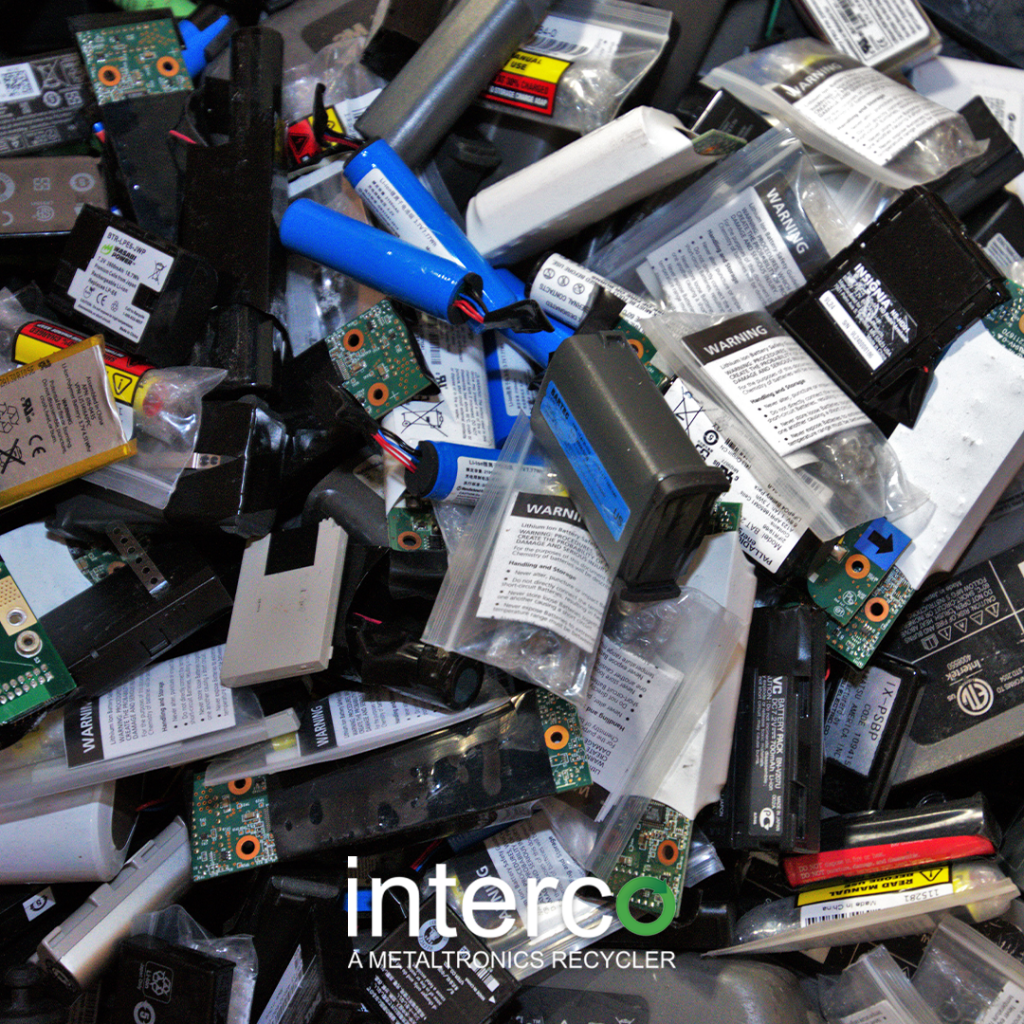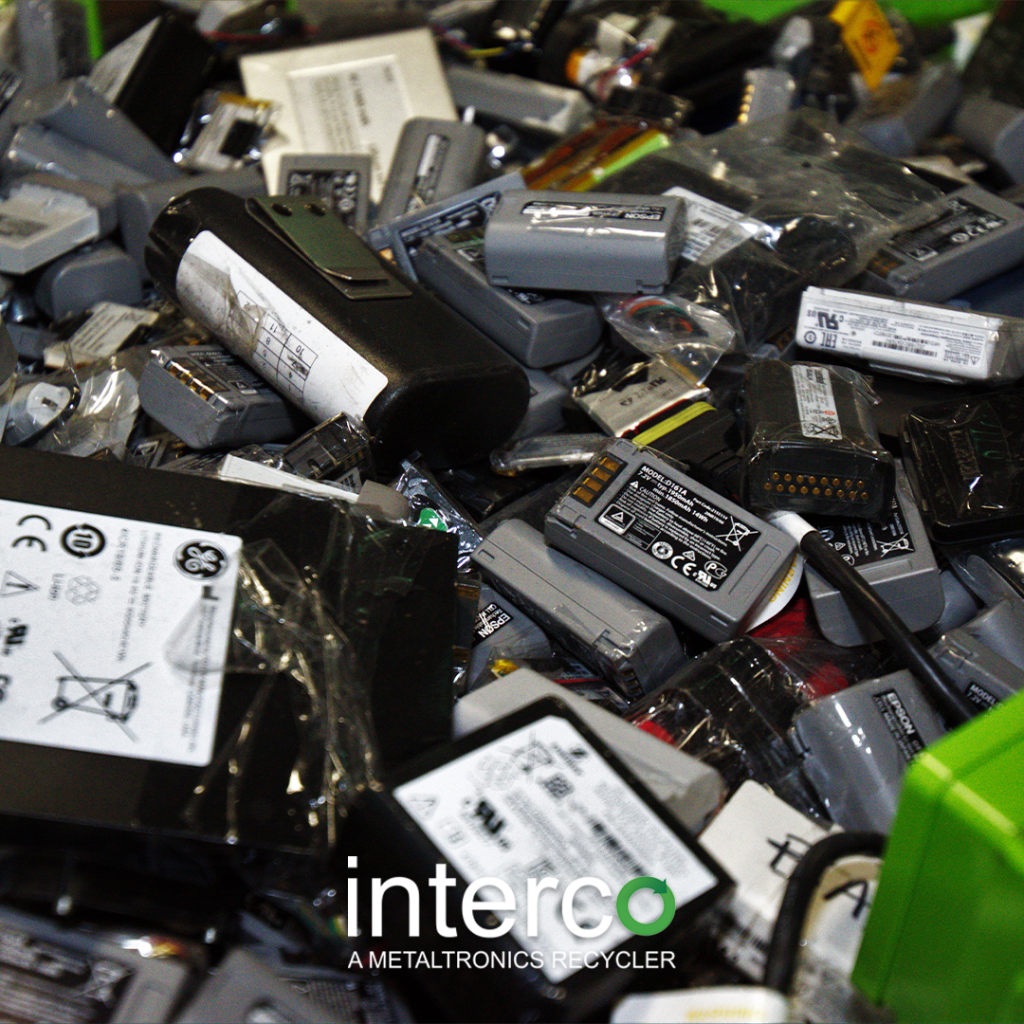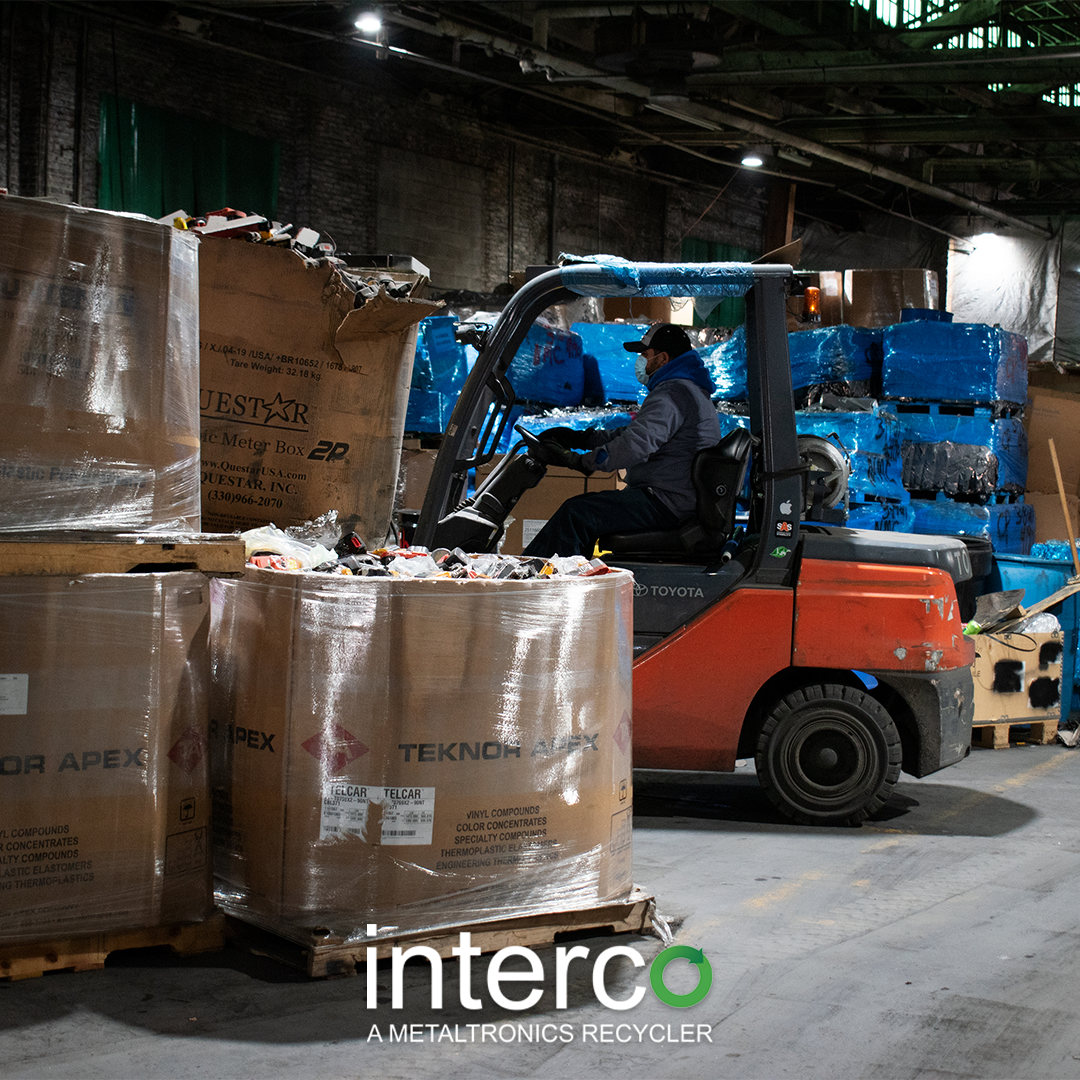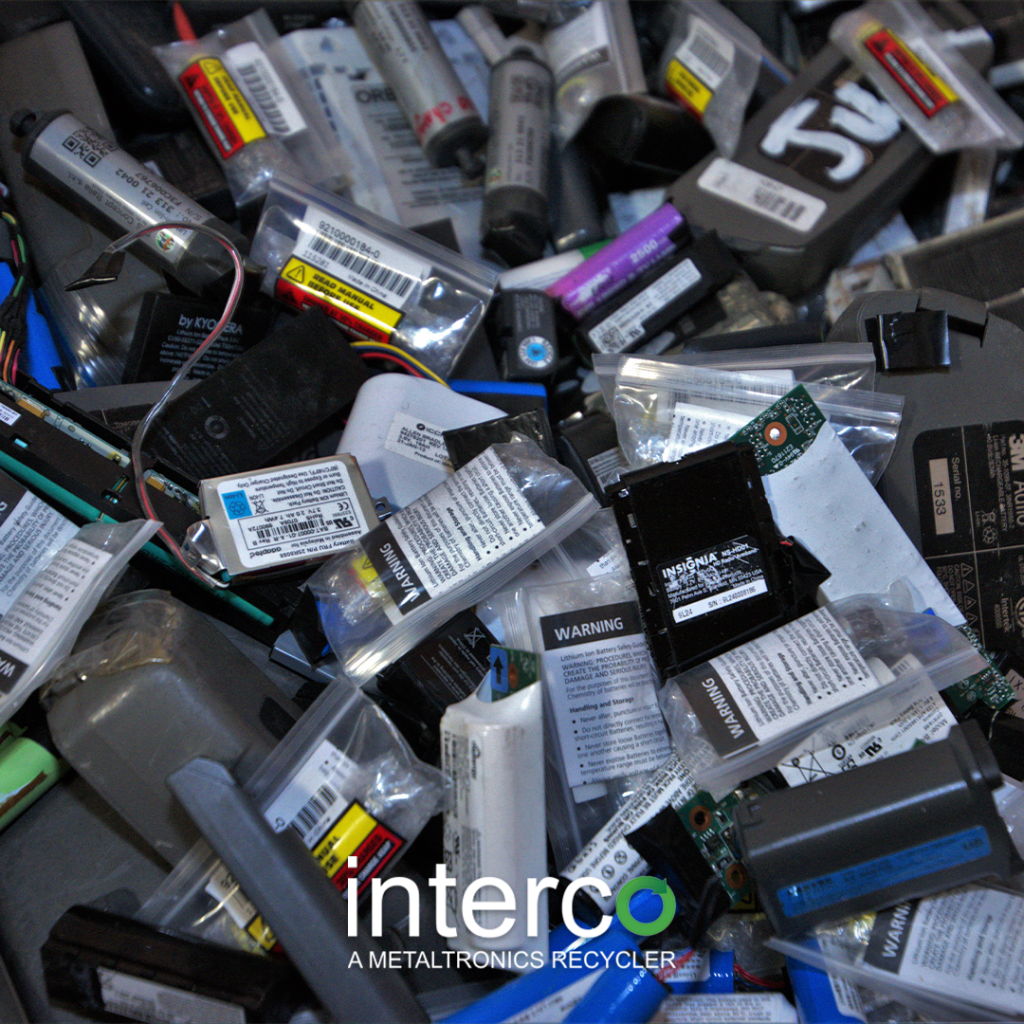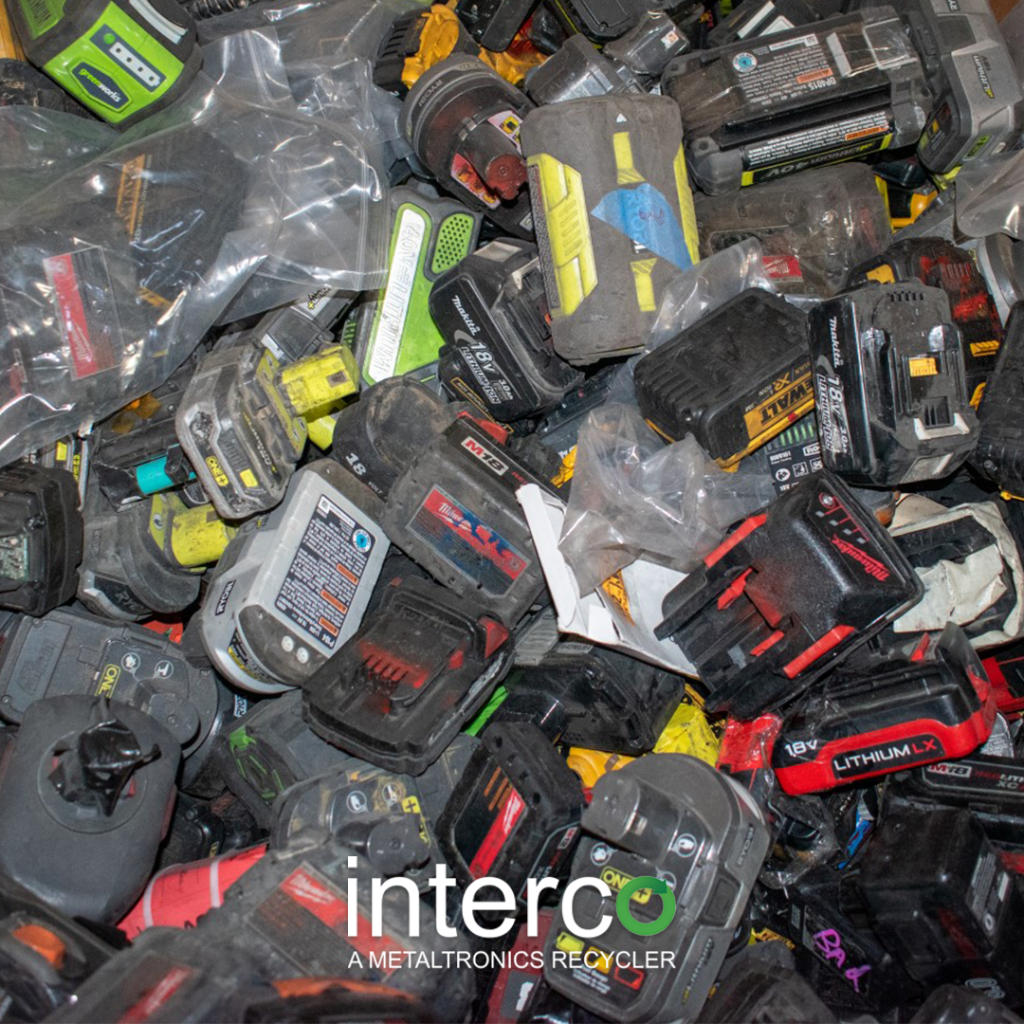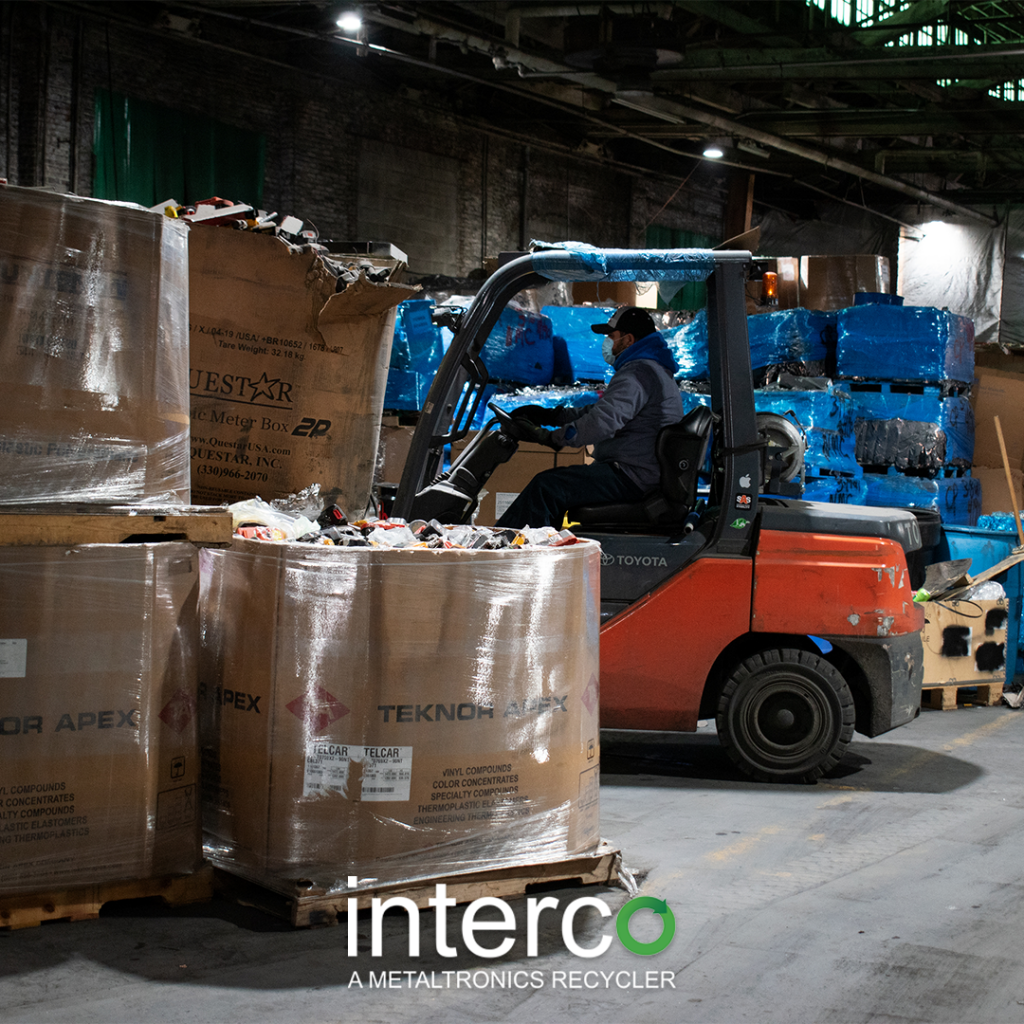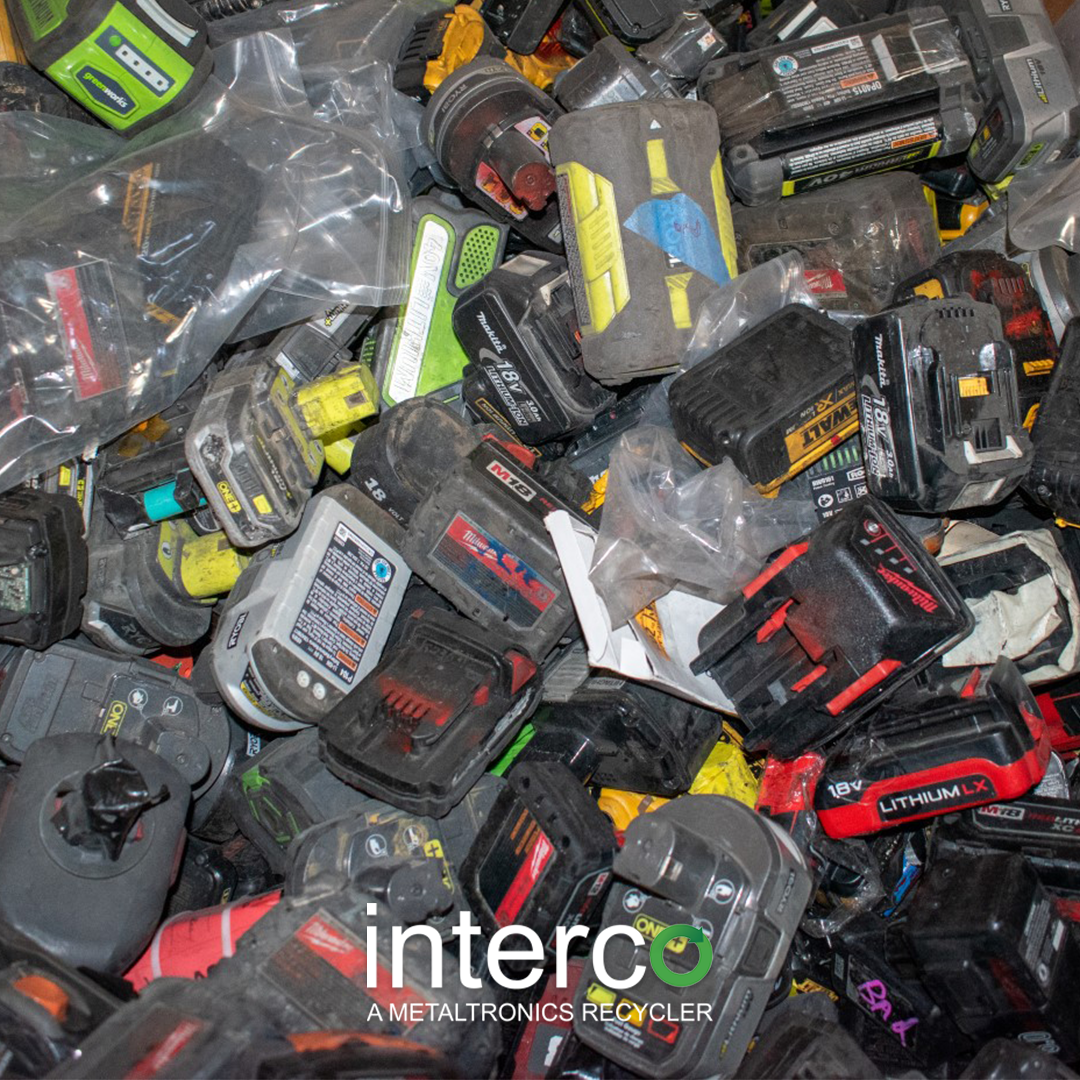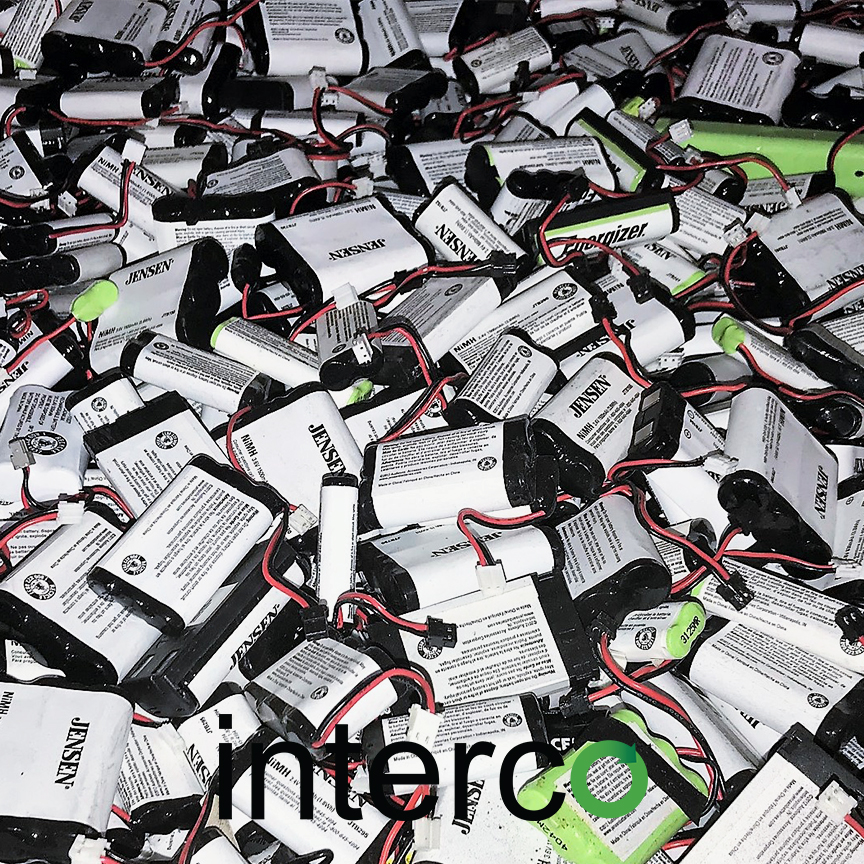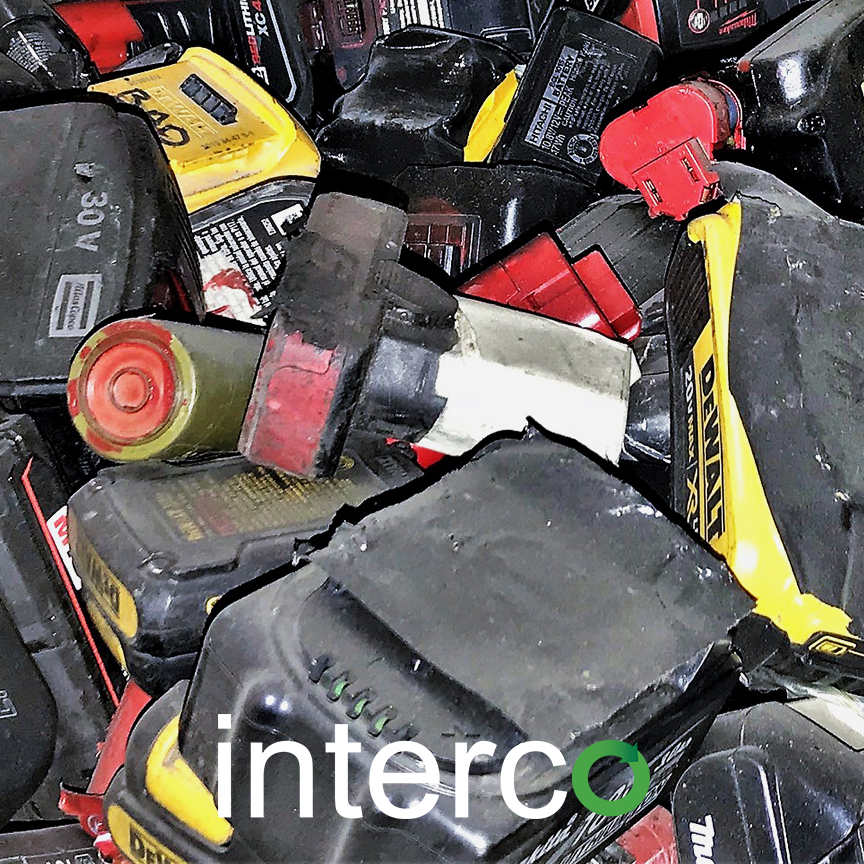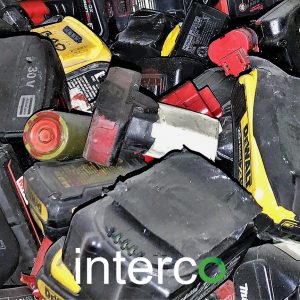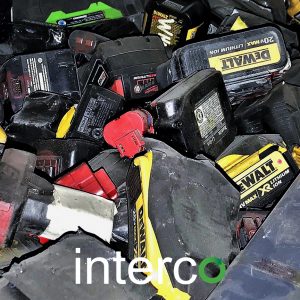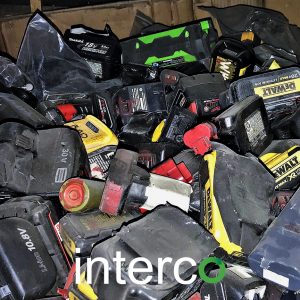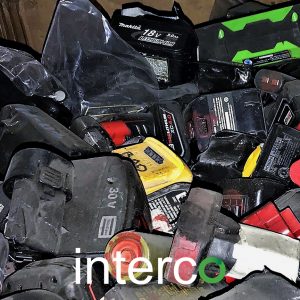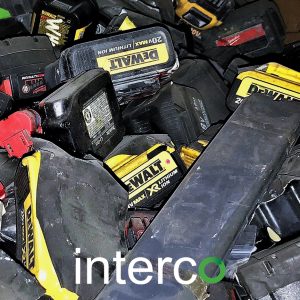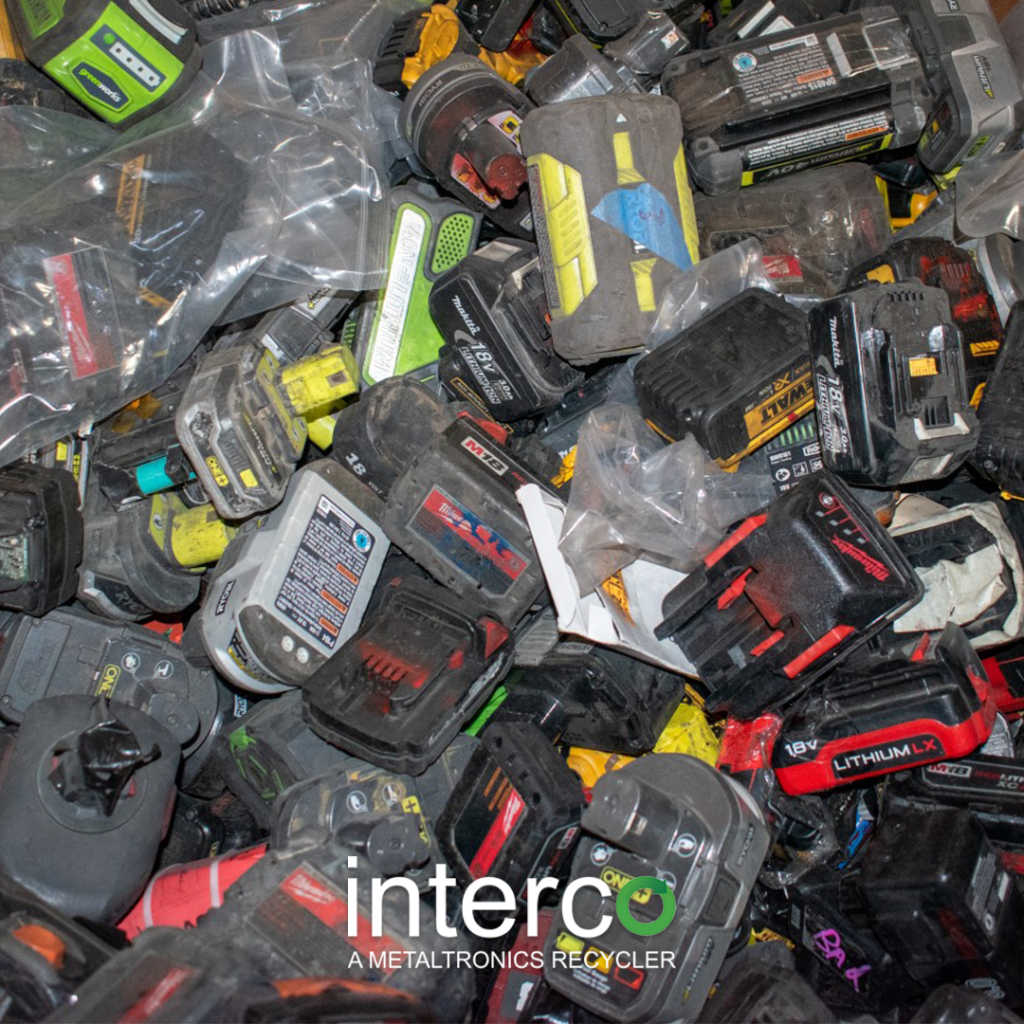
Finding Scrap Lithium-Ion Batteries Disposal Services
Scrap lithium-ion batteries disposal services like Interco provides valuable cost savings that span across numerous industries.
Scrap lithium-ion batteries have a potential recycling value that can turn waste into profit. The market for recycling lithium-ion batteries alone could be worth $18 billion annually by 2030, Statista estimates, up from $1.5 billion in 2019.
Batteries are expensive and have a relatively short life span. As discarded batteries grow by the tonnage, scrap lithium-ion batteries disposal services transform exhausted batteries into a valuable resource.
Lithium-ion batteries contain a variety of chemicals that require the use of scrap lithium-ion batteries disposal services. Improper disposal has significant consequences, such as environmental pollution and loss of material resources.
The handling of lithium-ion batteries during the end-of-life phase of electronic products requires additional attention. While the pile of spent lithium-ion batteries once powered those cars, industry analysts predict that by 2020, China alone will generate some 500,000 metric tons of used lithium-ion batteries.
These spent batteries are most found in landfills even though lithium-ion batteries are recyclable.
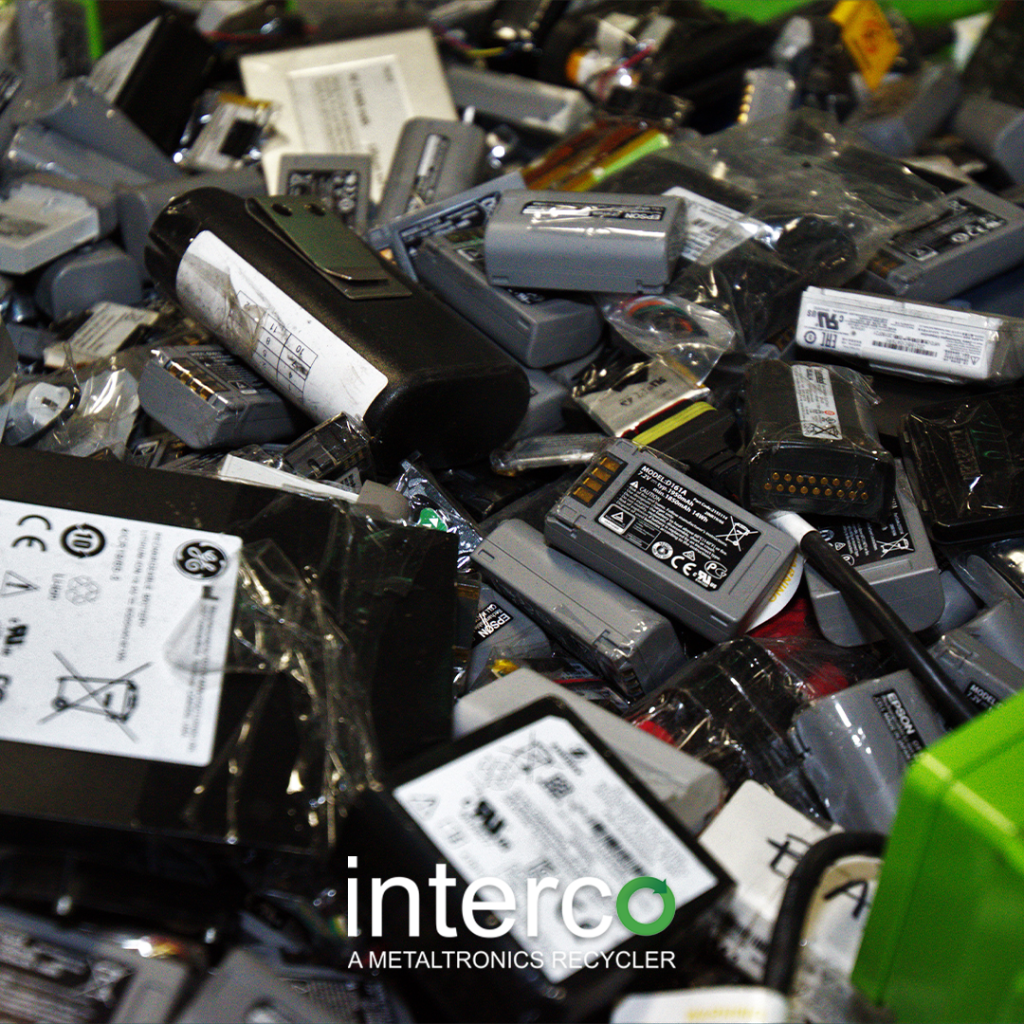
Find a Scrap Lithium-Ion Batteries Disposal Service
Battery waste continues to grow exponentially worldwide. When the waste starts to pile up, businesses often start the process of choosing a scrap lithium-ion batteries disposal service.
First, your business will want to match your recycling needs with the services offered. Lithium-ion batteries are valuable for their use and composition. In fact, it is important that the disposal service chosen can recycle lithium-ion batteries.
Various metals and minerals create a lithium-ion battery. Furthermore, these metals, like other batteries, include:
- Nickel
- Cobalt
- Copper
Thus, it is important that the disposal service chosen can recycle lithium-ion batteries.
Furthermore, when picking a battery recycler, it is important to make sure they can provide their federal, state, local, and occupational safety compliance records. Thus, there are a few environmental, quality, safety, and security measures built into these certifications to hold recyclers accountable for how they handle their clients’ assets.
Remember that your business as the generator is responsible for any waste you generate throughout its entire lifecycle, which includes picking a disposal service. Moreover, knowing your needs is an important first step in choosing a recycling partner.
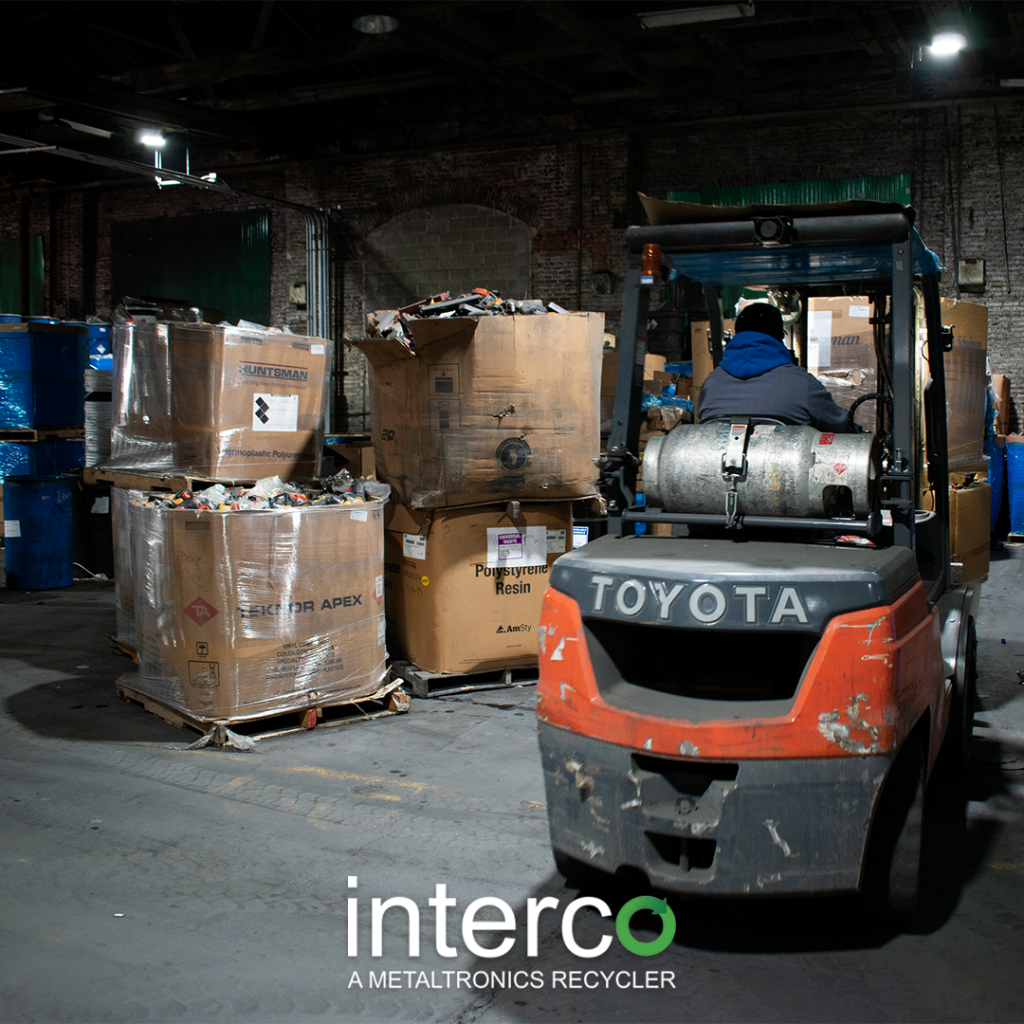
The Role of Scrap Lithium-Ion Batteries Disposal Services
Lithium-ion batteries are recyclable, but the process is not as easy as other electronic waste. Therefore, not all scrap lithium-ion batteries disposal services have processes for handling this type of electronic waste. Also, your business can’t deal with it in the same way as you would deal with other material waste.
Interco recycles scrap lithium-ion batteries with the goal of extracting the valuable metals from the battery. Before retrieving the metals, recyclers follow a recycling process.
- Prior to the recycling process, companies need to deactivate the batteries.
- Lithium-ion batteries are put in a specialized room that is oxygen-free.
- Hydrometallurgy is the process of extracting metals from ores.
- Next, the leaching process refers to the process of using aqueous solutions to extract metal from other metal-bearing materials.
- The battery components are separated into three different items. These items may include cobalt, steel, aluminum, copper, plastic.
- As a result, these valuable metals are retrieved, and companies sell them.
If batteries are handled incorrectly, there is a higher risk of fire, pollution, and other negative effects. As a result, Interco performs the recycling process for lithium-ion batteries carefully on a facility comprised of five buildings — approximately 400,000 square feet total — on more than 35 acres.
Interco, as an ISO 9001 Quality Management System certified company, continues an international-accepted uniform quality system, supplies the highest levels of customer service, and manages its material in the highest regard.
All material will be recycled by approved ISO 14001 Environmental Management and ISO 45001 Occupational Health and Safety best practices. As a result, Interco confirms the exact weights and records upon receipt, and we issue a written certificate of recycling.
Interco Offers Scrap Lithium-Ion Batteries Disposal Services
Interco has the capability to buy and sell scrap lithium-ion batteries for recycling purposes. Recycling allows for the recovery of rich metals and reduces the harmful effects on the environment that improper disposal causes. Furthermore, the team at Interco accepts, processes, trades, and recycles an array of nonferrous metals. Interco recycles batteries of all shapes, sizes, and chemistry. Thus, the team at Interco continues to lead the way in terms of innovative industrial recycling solutions. Finally, to discover more about how to recycle lithium-ion batteries, click here.
